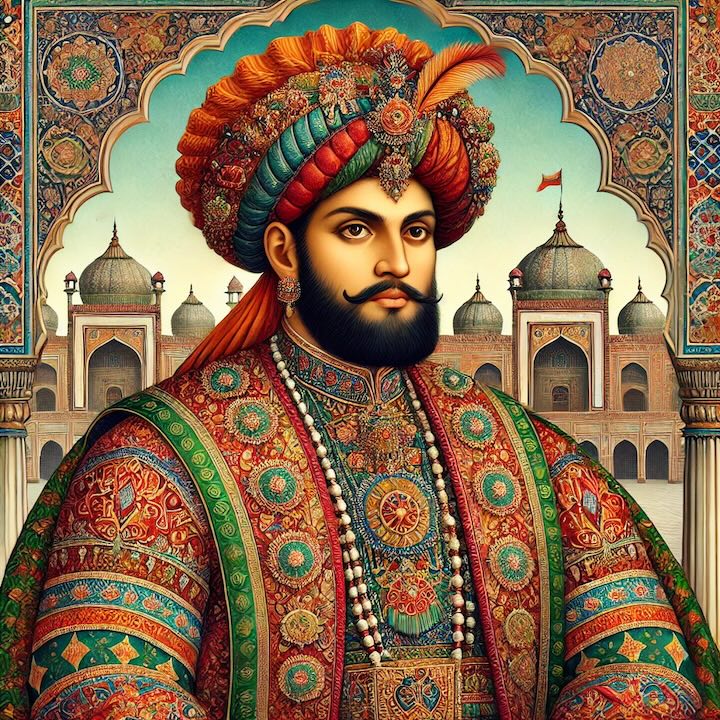Akbar the Great (1542-1605)

Akbar became emperor at age 13, upon the death of his father. He was known for extensive reforms instituted during his reign. These included: abolition of slavery; ending enforced suttee [burning of widows with their deceased spouses]; tax system reform; prohibition of polygamy (except in cases of barrenness); tolerance of religions other than Islam. Akbar also did much to promote commerce, the arts, and sciences..
Akbar, also known as Akbar the Great, was one of the most illustrious rulers of the Mughal Empire in India, reigning from 1556 to 1605. Born on October 15, 1542, in Umerkot (in modern-day Pakistan), he became the third Mughal emperor after the sudden death of his father, Humayun. Akbar's reign is often regarded as a golden age in the history of India due to his policies of tolerance, administrative reforms, and efforts to integrate the diverse cultural and religious communities within his empire.
Early Life and Ascension to the Throne
Akbar ascended to the throne at the tender age of 13 after his father Humayun died in an accident. Initially, his reign was guided by his regent, Bairam Khan, who played a crucial role in consolidating Mughal power in India. Bairam Khan acted as the young emperor’s mentor and military leader, successfully defending the Mughal empire from challenges by rival kingdoms.
Military Conquests and Expansion
One of Akbar's significant achievements was the expansion of the Mughal Empire, which under his leadership grew to encompass much of the Indian subcontinent. Akbar was a formidable military strategist who employed both diplomacy and warfare to bring various regions under Mughal control. His notable conquests include the annexation of Gujarat, Bengal, Rajasthan, and parts of Central India. Despite his military prowess, Akbar was also known for his diplomatic approach, forming alliances through marriage and treaties.
Administrative Reforms
Akbar's administrative reforms were revolutionary for their time and laid the foundation for a centralized government in India. He restructured the revenue system by introducing the "Mansabdari" system, which effectively organized the military and civil administration. This system allowed for the efficient collection of taxes based on land productivity and the standardization of tax rates. Akbar also instituted a uniform tax policy known as "Zabt," which ensured that taxes were based on an accurate assessment of land revenue.
Religious Tolerance and Social Reforms
Akbar is celebrated for his policy of religious tolerance, a stark contrast to many of his contemporaries. Though a Muslim by faith, Akbar sought to create a harmonious society by respecting and integrating various religious communities within his empire. He abolished the jizya (a tax imposed on non-Muslims) and encouraged debates among scholars of different religions at his court, which he called the "Ibadat Khana" (House of Worship). Akbar's interest in fostering interfaith dialogue led him to develop a syncretic religion known as "Din-i Ilahi" or the "Religion of God," which combined elements from various religions but was more a reflection of his philosophical ideals than a widespread practice.
Cultural Patronage and Legacy
Akbar was a great patron of the arts, culture, and science. His reign saw the flourishing of Mughal architecture, with the construction of iconic structures such as Fatehpur Sikri, the Agra Fort, and the Buland Darwaza. Akbar also commissioned the translation of many Hindu, Persian, and Greek texts into Persian, the court language of the Mughals, promoting a rich exchange of knowledge.
Akbar's court was home to a diverse group of poets, scholars, musicians, and artists, who contributed to the cultural renaissance of the Mughal period. The emperor's appreciation for art and culture is evident in the detailed miniatures of the Mughal school of painting, which blended Persian and Indian styles.
Personal Life and Succession
Akbar had multiple wives, including several Rajput princesses, which was part of his strategy to forge alliances with Rajput kingdoms. Despite his prohibition on polygamy (except in cases of barrenness), his personal life involved managing a large and diverse harem. Akbar’s policy of religious tolerance extended to his family life, where he maintained good relations with his Hindu wives and their families.
Akbar's reign ended with his death in 1605, after which his son Jahangir succeeded him. Akbar’s legacy as a just and enlightened ruler continues to be celebrated in India and beyond. His efforts to create a unified and prosperous empire, along with his progressive policies, have left an indelible mark on Indian history.
 >
>